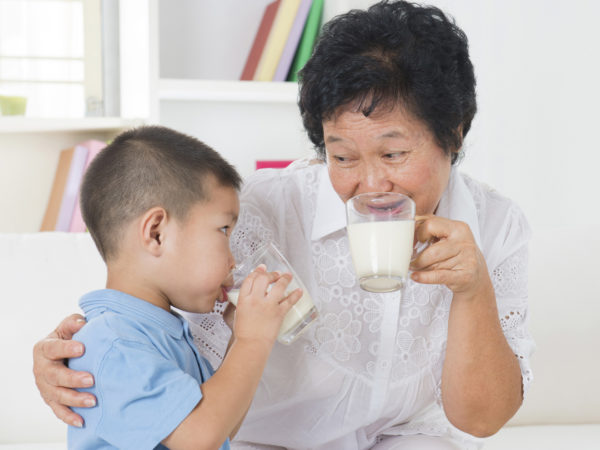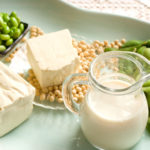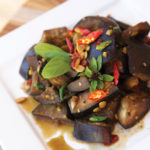Can Soy Feminize A Boy?
Given that soy products could stimulate estrogen-sensitive cells in the body, are men at any risk of developing effects of estrogen excess (like feminization) if these foods constitute a significant part of their diet?
Andrew Weil, M.D. | August 29, 2023

When you consider that millions of men in China, Japan, and other Asian countries have had soy foods in their daily diets from earliest childhood, you can appreciate that the plant estrogens they contain have no discernible effect on male sexual development, and no feminizing effects at all. Given the significant populations of Asian countries there’s no reason to think that soy affects male fertility, either. This self-evident conclusion is well supported by science, and I have no concerns that soy products would have any feminizing effect on males.
However, concerns in the Western world about the effects on boys and men from eating soy foods have been raised repeatedly and addressed in numerous laboratory and population studies. More than two decades ago, researchers at the University of Pennsylvania surveyed men and women who, as babies, were given soy-based formulas to see if any of them had sexual, fertility, or hormonal problems; they were then compared to a matched group raised on cow’s milk formula. The only discrepancies noted were some minor menstrual complaints among the women (their periods lasted one-third of a day longer and they reported slightly more menstrual pain). Results were published in the August 15, 2001, issue of the Journal of the American Medical Association.
In March 2002 the Journal of Nutrition published results of a survey of men consuming soy foods or supplements containing 40-70 milligrams of isoflavones (the phytogenic components). None of the studies showed that consuming soy had any effects on reproductive hormones or semen quality, both objectively measured changes that you might expect to see before any overt “feminization” would occur.
The intervening years have produced even more evidence that soy has no feminizing effect on men and boys. A 2021 analysis looked at studies published over a ten-year period and evaluated research on thousands of men who consumed soy foods, soy protein, or isoflavone extracts. Researchers found no evidence that soy consumption affected total testosterone, free testosterone, estradiol, or estrone.
Including soy foods in your diet may enhance your health and help protect against heart disease and prostate cancer. I recommend two servings per day of whole soy foods, such as tofu, tempeh (soy protein), soy milk or edamame. That would add up to about 40 milligrams of daily isoflavones, less than the amount consumed in the traditional Asian diet. The earlier in life one begins to consume soy, the greater the protection against breast and prostate cancer seems to be.
Andrew Weil, M.D.
Sources
Strom BL, Schinnar R, Ziegler EE, Barnhart KT, Sammel MD, Macones GA, Stallings VA, Drulis JM, Nelson SE, Hanson SA. Exposure to soy-based formula in infancy and endocrinological and reproductive outcomes in young adulthood. JAMA. 2001 Aug 15;286(7):807-14. doi: 10.1001/jama.286.7.807. PMID: 11497534. pubmed.ncbi.nlm.nih.gov/11497534/
Kurzer MS. Hormonal effects of soy in premenopausal women and men. J Nutr. 2002 Mar;132(3):570S-573S. doi: 10.1093/jn/132.3.570S. PMID: 11880595. pubmed.ncbi.nlm.nih.gov/11880595/
Reed KE, Camargo J, Hamilton-Reeves J, Kurzer M, Messina M. Neither soy nor isoflavone intake affects male reproductive hormones: An expanded and updated meta-analysis of clinical studies. Reprod Toxicol. 2021 Mar;100:60-67. doi: 10.1016/j.reprotox.2020.12.019. Epub 2020 Dec 28. PMID: 33383165. pubmed.ncbi.nlm.nih.gov/33383165/
Originally Posted November 2003. Updated August 2023.












